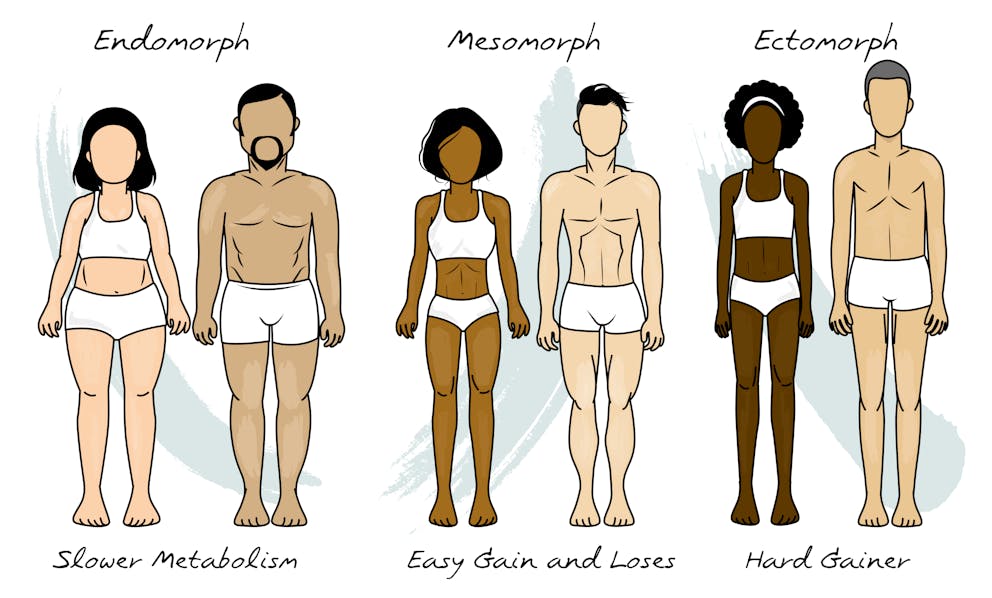Does Eating Rev Up Metabolism
Understanding The Effects of Metabolism and Insulin on Weight Loss
Your metabolism and insulin balance significantly affect how your body processes food, regulates hunger, and maintains energy production. Discover the intricate link between our eating habits, metabolism, and insulin production.
Learn the truth behind common myths about eating frequency and its impact on metabolism, and learn how different foods affect insulin release and blood glucose fluctuations. Also, explore why snacking is counterproductive for weight loss and how to manage hunger without resorting to constant grazing.
The Myth of Eating and Metabolism
Many people believe that eating more frequently can boost metabolism, which in turn aids weight loss. However, this common misconception is not accurate. Insulin is a major factor in body composition, fat storage, and metabolic processes, and eating more often can cause weight gain.
In this section, we'll investigate how insulin influences metabolism and appetite while dispelling the myth that snacking can help you lose weight.
Insulin's Role in Metabolism and Hunger
Insulin is a hormone released by your pancreas when you consume food - especially carbohydrates.
Its primary function is to regulate blood sugar levels by facilitating the entry of glucose into cells for energy production. Insulin also regulates the conversion of excess blood glucose into fat, explaining why eating carbs can increase fat mass.
Excessive insulin production can result in hunger and cravings as blood sugar drops after consuming a carb-rich meal. Carbohydrates significantly impact insulin production because they are quickly broken down into glucose within your body. Protein also triggers some degree of insulin release but at a lower level than carbs. Fats, on the other hand, have little to no effect on insulin secretion.
When you eat several small meals or snacks throughout the day, your body continually releases insulin, leading to fluctuating blood sugar levels, which trigger cravings and persistent feelings of hunger.

Why Snacking Can Be Counterproductive for Weight Loss
Snacking between meals may appear beneficial for weight loss.
However, it can have the opposite effect. As mentioned, daily snacking causes your body to release insulin more frequently.
This increased insulin production results in low blood sugar levels, which trigger cravings for sweets or carbohydrates - leading to a higher overall calorie intake and undermining your efforts towards shedding those extra pounds.
Effects of constant grazing on metabolic rate: Contrary to popular belief, eating small meals or snacks all day long does not significantly increase your metabolism. Constantly consuming food may lead to a slower metabolic rate as your body becomes accustomed to having an energy source readily available at all times.
Strategies for managing hunger without resorting to snacks: Instead of relying on snacks between meals, try drinking water or herbal tea when you feel hungry - this can help curb appetite while providing hydration benefits. Additionally, ensure that each meal contains adequate amounts of healthy fats, keeping you fuller for longer.
Meal Frequency
To avoid triggering excessive insulin production while still providing necessary nutrients, consuming between one to three meals daily without any additional snacks is recommended.
Doing so will keep your body fueled efficiently while minimizing unwanted side effects like carb cravings or persistent feelings of hunger.
Insulin's Role in Metabolism and Hunger
Understanding the relationship between eating, metabolism, and weight loss requires a crucial understanding of insulin.
Insulin primarily regulates blood sugar levels by driving fuel into cells for energy production or storage as fat. However, this process also impacts hunger signals within our bodies, and elevated insulin has been found to cause frequent cravings and persistent hunger sensations.
How Different Types of Food Affect Insulin Release
Different types of foods can have varying effects on insulin release and subsequent hunger sensations.
Carbohydrates tend to cause the most significant spike in insulin levels due to their rapid conversion into glucose (sugar) upon digestion. This quick rise in blood sugar prompts the pancreas to produce more insulin than fat. As a result, consuming high-carb meals often leads to increased feelings of hunger shortly after eating.
In contrast, foods rich in healthy fats generally lead to slower increases in blood sugar levels and less significant fluctuations in insulin secretion. High-fat meals provide sustained energy without causing sharp spikes, followed by crashes that leave you feeling hungry soon after your meal.
Blood Sugar Fluctuations Caused by Frequent Meals
Eating frequent small meals throughout the day may seem like a good strategy for maintaining steady energy levels; however, doing so can contribute negatively towards your weight loss goals due to constant fluctuations in blood sugar levels caused by insulin release.
Insulin secretion is triggered by eating, allowing it to regulate blood sugar levels; however, when this happens too often due to frequent meals or snacks, it can cause a cycle of high and low blood sugar levels.
As previously mentioned, these fluctuations in blood sugar often result in increased hunger sensations as your body craves more fuel. This may cause you to consume additional calories that undermine weight loss efforts by promoting overeating and cravings for sweets or carbohydrate-rich foods.
To better manage insulin's effects on metabolism and hunger signals while pursuing weight loss goals, consider adjusting meal frequency and macronutrient composition.
By consuming fewer carbohydrates and focusing on healthy fats instead, you can minimize rapid fluctuations in blood sugar levels that contribute to persistent feelings of hunger throughout the day.
Why Snacking Can Be Counterproductive for Weight Loss
Contrary to popular belief, snacking between meals may not be beneficial for losing weight as it continually triggers insulin release throughout the day.
As explained earlier, increased insulin levels cause low blood sugar, which leads to more cravings and higher overall calorie intake - undermining your efforts towards shedding those extra pounds.
This section will discuss the effects of constant grazing on metabolic rate and strategies for managing hunger without resorting to snacks.
Effects of Snacking on Metabolic Rate
The idea that eating small meals frequently boosts metabolism is a myth perpetuated by outdated diet advice. Eating constantly throughout the day keeps your body in a constant state of food processing and insulin release, leading to fluctuations in blood sugar levels and increased appetite.
In addition, when our bodies are continuously exposed to high amounts of insulin over time - known as hyperinsulinemia - it can result in insulin resistance.
Insulin resistance makes it harder for cells to take up glucose from the bloodstream effectively, significantly increasing the risk of type 2 diabetes and other health complications.
Strategies for Managing Hunger Without Resorting To Snacks
Increase your fat and fiber intake: Consuming healthy fats and fiber-rich vegetables can help you feel fuller for extended periods, reducing the need to snack. Fat, in particular, has been shown to increase satiety more than carbohydrates or proteins.
Stay hydrated: Drinking water throughout the day can help manage hunger, as thirst is often mistaken for hunger. Additionally, consuming a glass of water before meals may reduce calorie intake by promoting fullness.
Avoid distracted eating: Paying attention to your body's hunger cues can prevent overeating and unnecessary snacking. This involves savoring each bite of food while avoiding distractions like watching TV or scrolling through social media during mealtime.
Avoid trigger foods: Identify specific foods that cause cravings or binge-eating tendencies and eliminate them from your diet. Instead, opt for healthier alternatives that satisfy your taste buds without causing an insulin spike.
Incorporating these strategies into your daily routine will help curb cravings and support overall health by maintaining stable blood sugar levels and minimizing insulin release between meals.
By focusing on nutritious meal options rather than constant grazing, you'll be better equipped to achieve sustainable weight loss success without compromising long-term wellness goals.
Metabolic Body Types and Your Metabolism
Your metabolic body type plays a significant role in determining how your body responds to different types of food, exercise, and overall lifestyle.
Understanding your metabolic type can help you make informed decisions about the foods and activities you eat. You can take this weight loss body type quiz to learn more about your metabolic body type.

The Three Different Metabolic Body Types
The three main metabolic body types are endomorphs, ectomorphs, and mesomorphs. Each type has unique characteristics that affect its metabolism differently.
Endomorph: Endomorphs tend to have a slower metabolism and store fat faster than other types. They may also have trouble losing weight or maintaining a healthy weight without careful attention to diet and exercise habits.
Ectomorph: Ectomorphs typically have a faster metabolism but struggle to gain muscle mass or maintain weight due to high energy expenditure. They may need higher calorie intake or specific macronutrient ratios for optimal health.
Mesomorph: Mesomorphs fall somewhere between endo- and ectomorph traits, with an easier time building muscle mass while still having some degree of leanness. They generally respond well to strength training exercises and cardiovascular workouts when it comes to burning off excess calories from their diets.
Fuel Your Fire
Delves into the relationship between eating habits and metabolism, challenging common beliefs about how food intake affects metabolic rate. To truly understand how to optimize your metabolism, it's essential to recognize your unique body type.
By taking a body type quiz, you can gain valuable insights into your specific metabolic tendencies and dietary needs.
This personalized information allows you to tailor your eating habits to effectively fuel your body, enhance metabolic function, and achieve your health goals more efficiently.
Understanding your metabolic blueprint is key to unlocking a more effective and sustainable approach to wellness.
Conclusion
By understanding how different types of food affect insulin release and how frequent meals can trigger blood sugar fluctuations, we can make informed decisions about our eating habits.
Snacking might appear to be handy for controlling appetite, but it can impede weight loss. Constant grazing can have adverse effects on metabolic rate.
FAQs
1. How Does Metabolism Affect Insulin?
Metabolism influences insulin levels by determining how quickly the body processes and utilizes glucose. A higher metabolic rate results in faster glucose uptake, which can lower insulin demand.
Conversely, a slower metabolism may lead to increased blood sugar levels and higher insulin requirements to maintain proper glucose homeostasis.
2. Does Insulin Reduce Metabolism?
No, insulin doesn't directly reduce metabolism. However, high levels of circulating insulin due to frequent eating or consumption of carbohydrate-rich foods can contribute to weight gain and reduce fat-burning capacity by promoting fat storage instead of utilization for energy.
3. What Is the Relationship Between Insulin and Fat Metabolism?
The relationship between insulin and fat metabolism is complex. When blood sugar rises after a meal, the pancreas releases more significant amounts of insulin to signal cells to take up glucose from the bloodstream.
Simultaneously, insulin inhibits lipolysis (fat breakdown) while promoting lipogenesis (fat synthesis), leading to decreased use of stored body fat as an energy source.
4. How Does Insulin Regulate Energy Metabolism?
Insulin regulates energy metabolism by controlling cellular uptake of nutrients like glucose and amino acids while also modulating enzyme activity involved in glycogen synthesis/storage within muscles and liver cells.
Previous blog
Are You Thinking About Food Too Much?Next blog
Chocolate Coconut Keto Fat BombsTags

Popular
08/21/2024
55.7K views
02/23/2025
46.8K views
11/18/2024
281.2K views
03/18/2024
11/21/2022




